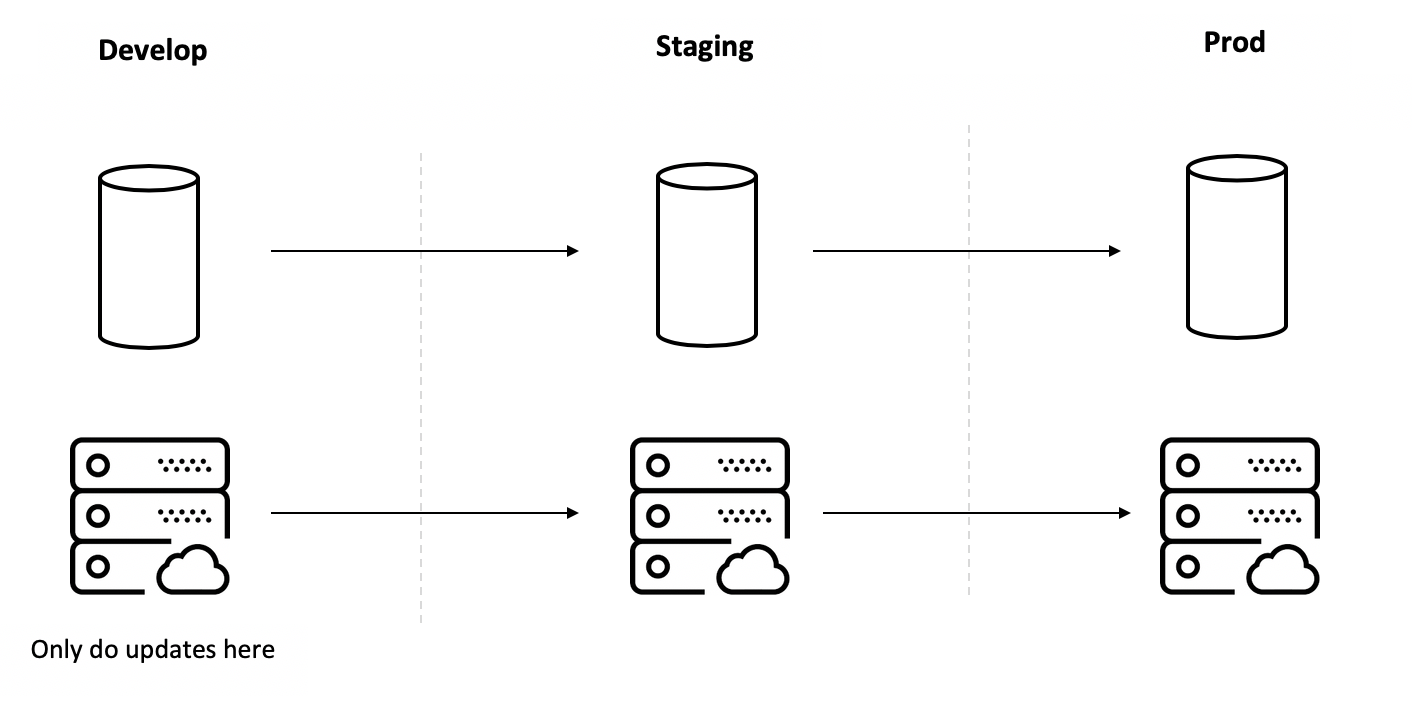I've a bit of a problem. I'm currently trying to realize a WordPress development process regarding to one of my old question / topic:
https://stackoverflow.com/questions/48890019/wordpress-development-process
So currently I've GitLab installed (which is a free and good solution for small projects). On GitLab I've 3 branches: prod, staging, develop.
Regarding to these 3 branches, I've 3 instances of WordPress running.
Everything works good (Branching, updating files and all the stuff) until I need to make a plugin update. The problem is, that I only want to do updates on my develop instance in the future. So when I do an update, I can push all updates files to git. But there is a huge problem - the database.
I've tried to do some research to find out if there is any tool to make my databases working like GIT but I can't find any Open Source Tool which seems to be good enough to handle this task. There is a plugin for this, but I don't want to use a plugin.
So I hope there is a better solution to perform a continues delivery process like this here in WordPress:
Does anyone have experience with this kind of process within WordPress? If yes, how do you handle this to be 100 % safe with developing and updating WordPress?
I'm thankful for any ideas / help / experiences I can get!

